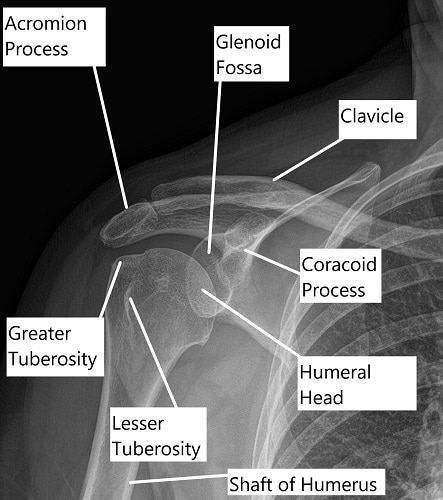Shoulder Treatment
Our orthopedic team can diagnose & treat shoulder injuries and conditions of all types. The shoulder is a complex joint, and can become painful from injuries received while playing sports, after being involved in an accident or simply from aging.
Getting a correct diagnosis and treatment for your shoulder is critical. That’s why we have multiple locations throughout Long Island and into Manhattan, to support you at every phase of orthopedic care.
Dr. Vedant Vaksha is a sports fellowship trained surgeon, and specialist of the knee, shoulder neck and back. Watch the video so hear him talk about the shoulder.
When do people hurt their shoulder?
People can injure their shoulder either by falling on it, hurting it in a car accident or overusing it. It can either start hurting right away, have a delayed onset, or start mild and increase over time.
It may also start after performing a lot of overhead activity. The onset initially can be sudden or gradual after a precipitating event, slowly building over hours or days.
The pain can vary between being mild and intermittent to excruciating and continuous. The pain can start initially over the shoulder and then progress down the arm, up to the neck or around to the back.
It can even radiate down to the fingers. This is a sign that the shoulder injury is overloading surrounding muscles and nerves like the brachial plexus, a group of nerves going from the spinal column into the arm.
What do you do when the shoulder hurts?
If you fell on it or injured it in a high energy manner and perhaps heard a crack or a pop, then you need to call your doctor. You may have broken a bone or dislocated or subluxated a joint and should have it attended to. If you are not sure, call the doctor.
If the pain is not severe, the first thing you do is to rest it. Make your shoulder comfortable. Let your shoulder relax and fall back squeezing your shoulder blade next to your spine. You can ice it. You can take anti inflammatory agents like ibuprofen or naproxen with or without Tylenol. Most shoulder problems will usually get better day to day. If it doesn’t you need to see your doctor.
What does a doctor to do for a shoulder pain?
The doctor is going to try to find out why your shoulder pain is not getting better. Your doctor is going to ask you questions, examine you, perhaps get an Xray. Depending on how you hurt yourself and what your doctor finds you’ll be directed to do any one of a number of things. You may be directed to continue resting while starting physical therapy. You may be given medication. You may be directed to have another study such as an MRI or CAT scan. You may be advised to have surgery.

X-ray showing shoulder anatomy
What causes aggravation of shoulder pain?
When you have shoulder pain, depending on the energy of the injury it comes mostly from either the bones, muscles and /or ligaments and capsule. Breaking a bone takes more energy and frequently is associated with a lot of pain and is usually of sudden onset. In situation where the onset is gradual, the structures most commonly involved include the muscles and the capsuloligamentous structures associated with the joints of the shoulder. Sometimes injury and inflammation of the rotator cuff tendon, biceps tendon or the shoulder joint capsule or its labral or acromioclavicular joint (AC joint) may be the cause of the pain.

Dr. Vedant Vaksha
I am Vedant Vaksha, Fellowship trained Spine, Sports and Arthroscopic Surgeon at Complete Orthopedics. I take care of patients with ailments of the neck, back, shoulder, knee, elbow and ankle. I personally approve this content and have written most of it myself.
Please take a look at my profile page and don't hesitate to come in and talk.
